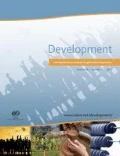Abstract
Akshay Khanna applies a new lens – the ‘unruly’ – to the uprising and riots that have recently occurred all over the world. He argues that by conceptualizing the term ‘unruly politics’ it becomes easier to understand the changes that have happened in politics and citizen participation in the last few years. Although all these movements are different and linked to the contexts in which they originated, there is a commonality that can be traced back in the unruly character of the politics involved. The ultimate aim of the article is to ask: What are the new modalities of political action that these events have generated, and how have these events reconfigured political spaces?
Similar content being viewed by others
Notes
This article is a crystallization of the conceptual terrain covered in a more detailed paper, including discussion on several cases and contexts.
For an ethnographic and historical account of such an instance; i.e., the emergence of ‘civil society’ that makes representational claims in the context of the Queer movement in India (see Khanna, 2009).
The pronouns ‘heris’, ‘herim’ and ‘s/he’ are used in this article to introduce a multiplicity of gender into the imagination of the political subject. Rather than ‘her/his’ and so on, which maintain a male–female binary, and create space for gender diversity only insofar as ‘transgender’ implies a movement between the two, these terms allow for other genders that the development industry, for the most part, resists recognizing. For a detailed analysis of the linguistic conditions under which these new pronouns become necessary, see Khanna (2009).
There is some discussion to be had on the distinction between ‘transgression’ and ‘transcendence’ as forms of politics. Whereas transgression still refers to the norm it transgresses or overcomes, and therefore reproduces it, transcendence is a far more radical form – it treats the norm as irrelevant and resists its reproduction. To the extent that strategies of ‘unruly politics’ work in conjunction with more normative forms of political action, they might be better understood in the frame of transgression. Yet, there are forms that do not draw on the normative frame. These, perhaps, are better understood as transcendent.
Drawing on Žižek's reading of Hegelian dialectics (1989, generally).
And significantly, while there is a celebration of the role of new information and communication technologies in the ‘Arab Spring’ by Western states, the London riots immediately instigate a call by the same people for regulation of ICTs.
The Symbolic register is the world of words, of identities, of meaning. The imaginary is a deceptive surface, which, while structured by the Real, is marked by alienation. The Real is simply that which cannot be symbolized, that which constantly escapes signification. To understand this, let us look at the Lacanian mirror stage. When a child first recognizes herimself in a mirror, this being a moment of the emergence of the self on the imaginary plane, this moment of self-identification is also marked by an impossibility of identification. The child looks at the image in the mirror and identifies with it, but at the same time recognizes that ‘this is not me’ (it is an image). This is a moment of alienation as well as identification. In this sense, identification is simultaneously the recognition of the impossibility – the Real, which cannot be symbolized, is already written into the form of identity.
References
Agamben, Giorgio (1998) Homo Sacer – Sovereign power and bare life, Stanford: Stanford University Press.
Badiou, Alain (2005) Metopolitics, Translated by Jason Barker, London: Verso.
Chantal Mouffe and Ernesto Laclau (1985) Hegemony and Socialist Strategy, London: Verso.
Graeber, David (2011) ‘On Playing by the Rules: The strange success of #OccupyWallStreet’, http://www.nakedcapitalism.com/2011/10/david-graeber-on-playing-by-the-rules-%E2%80%93-the-strange-success-of-occupy-wall-street.html, accessed 14 March 2012.
Hage, Ghasan (2003) ‘“Comes a Time We are All Enthusiasm”: Understanding Palestinian suicide bombers in times of exighophobia’, Public Culture 15 (1): 65–89.
Khanna, Akshay (2009) ‘A Refracted Subject: Sexualness in the realms of law and epidemiology’, PhD thesis submitted to University of Edinburgh.
Khanna, Akshay, Priyashri Mani, Zachary Patterson, Maria Pantazidou and Maysa Shqerat (2012) ‘The Changing Faces of Citizen Action: A mapping study through an ‘unruly’ lens’, Working Paper HIVOS and IDS.
Puar, Jasbir (2007) Terrorist Assemblages: Homonationalism in queer times, Durham: Duke University Press.
Ranciere, Jacques (2001) ‘Ten Theses on Politics’, Theory and Event 5 (3). Also accessible at http://www.humnet.ucla.edu/humnet/cmcs/Ranciere.html.
Rao, Rahul (2011) ‘Queer in the Time of Terror’, in Arvind Narrain and Alok Gupta (eds.) Law Like Love – Queer perspectives on law, New Delhi: Yoda Press.
Scott, James (1985) Weapons of the Weak: Everyday forms of peasant resistance, New Haven: Yale University Press.
Scott, James (1990) Domination and the Arts of Resistance: Hidden transcripts, New Haven: Yale University Press.
Shankland, Alex (2011) ‘Occupy LSX, Unruly Politics and Subversive Ruliness’, http://participationpower.wordpress.com/2011/12/27/occupy-lsx-unruly-politics-and-subversive-ruliness/, accessed 14 March 2012.
Shankland, Alex, Danny Burns, Naomi Hossain, Akshay Khanna, Patta Scott-Villiers and Mariz Tadros (2011) ‘Unruly Politics: A manifesto’, Brighton: IDS (mimeo).
Tadros, Mariz (2011) ‘The Politics of Unruly Ruptures’, UNRISD News, Issue 7, December, http://www.unrisd.org/unrisd/website/newsview.nsf/%28httpNews%29/6CACEA99340950AAC125795D00581C33?OpenDocument, accessed 14 March 2012.
Tadros, Mariz (2012) ‘The Egyptian Revolution and the Parable of the Man Who Occupies Your House’, http://participationpower.wordpress.com/2012/01/25/the-egyptian-revolution-and-the-parable-of-the-man-who-occupies-your-house/, accessed 14 March 2012.
Žižek, Slavoj (1989) The Sublime Object of Ideology, London: Verso.
Acknowledgements
This article draws on the collective labours of a larger group of people at the Institute of Development Studies who are working together on a conceptualization of ‘unruly politics’. The author would like to emphasize the centrality of the heady and exciting discussions with Alex Shankland, Patta Scott-Villiers, Naomi Hossain, Mariz Tadros, Danny Burns and Joanna Wheeler, and the fabulous students at the Summer of Unruly Reading course, in the conceptualizations that feature in this article.
Additional information
Applies the lens of the ‘unruly’ to the uprisings and riots happened in recent times all over the world
Rights and permissions
About this article
Cite this article
Khanna, A. Seeing Citizen Action through an ‘Unruly’ Lens. Development 55, 162–172 (2012). https://doi.org/10.1057/dev.2012.21
Published:
Issue Date:
DOI: https://doi.org/10.1057/dev.2012.21




